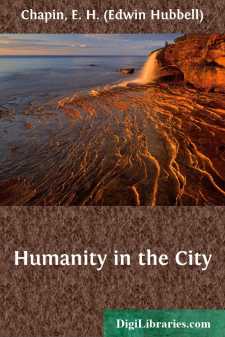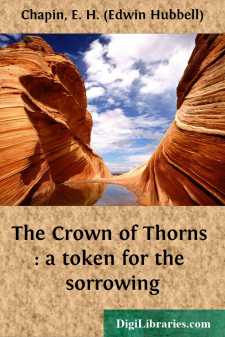Categories
- Antiques & Collectibles 13
- Architecture 36
- Art 48
- Bibles 22
- Biography & Autobiography 813
- Body, Mind & Spirit 142
- Business & Economics 28
- Children's Books 15
- Children's Fiction 12
- Computers 4
- Cooking 94
- Crafts & Hobbies 4
- Drama 346
- Education 46
- Family & Relationships 57
- Fiction 11829
- Games 19
- Gardening 17
- Health & Fitness 34
- History 1377
- House & Home 1
- Humor 147
- Juvenile Fiction 1873
- Juvenile Nonfiction 202
- Language Arts & Disciplines 88
- Law 16
- Literary Collections 686
- Literary Criticism 179
- Mathematics 13
- Medical 41
- Music 40
- Nature 179
- Non-Classifiable 1768
- Performing Arts 7
- Periodicals 1453
- Philosophy 64
- Photography 2
- Poetry 896
- Political Science 203
- Psychology 42
- Reference 154
- Religion 513
- Science 126
- Self-Help 84
- Social Science 81
- Sports & Recreation 34
- Study Aids 3
- Technology & Engineering 59
- Transportation 23
- Travel 463
- True Crime 29
Humanity in the City
Description:
Excerpt
DISCOURSE I.
THE LESSONS OF THE STREET.
Wisdom crieth without; she uttereth her voice in the streets.—Proverbs, i. 20.
The great truths of religion may be communicated to the mind and the heart in two ways—by abstract treatment, and by illustration. It must be taken up in its absolute connection with God, and with our own souls. In solitary meditation, in self-examination, and in prayer, we shall learn the intrinsic claims which Faith and Duty have upon reason and conscience. But we cannot proceed far before we discover the necessity of some symbol, by which these abstract principles may be made distinct to us. And, looking around for this purpose, we find that all the phases of existence are full of spiritual illustration—full of religious suggestion and argument. Thus our Saviour pronounced his great doctrines of Eternal Life, and of Personal Religion, and then turned to the world for a commentary. Under his teaching nature became an illuminated missal, lettered by the lilies of the field, and pencilled with hues that played through the leaves of Olivet. The wild birds, in their flight, bore upward the beautiful lesson of Providence, and the significance of the Kingdom of Heaven was contained in a mustard-seed. By no abstruse reasoning did he make his instructions so vivid to his disciples, and so fresh to ourselves. But he awoke the conviction of moral need, and repentance, and Divine Love, by drawing from instances with which they had been familiar all their lives—the procedures of government, the transactions of business, the labors of the husbandman, and the incidents of home. And the result is essentially the same, whether we start with the religious truth to find some illustration in the world around us, or from some aspect of human life, or nature, extract a religious truth. Nor need this always be sharply obvious. It is only necessary that our point of view be sufficiently elevated to throw a spiritual light upon things, and to reveal their moral relations; for, often, our understandings are cleared, and our hearts made better, by the mere scope and tendency of such observations.
With this conviction, I called your attention, last winter, to some of the "Aspects of City Life," and with the same view, I wish now to address you, for a few Sunday evenings, on the Conditions of Humanity in the City, in which series I shall endeavor not only to present new topics of interest, but to urge more explicitly some points, which, in the afore-mentioned discourses, I merely touched upon.
The essential meaning of the personification in the text is in accordance, I think, with the general tenor of remark which I have just been making. For I understand it to mean, that everything is instructive, that even in the common ways of life the most important truths, and the profoundest moral and religious significance, are contained. And the words before us, also, specifically indicate the subject upon which I wish to speak this evening, for they declare that "Wisdom... uttereth her voice in the streets."
The street through which you walk every day; with whose sights and sounds you have been familiar, perhaps, all your lives; is it all so common-place that it yields you no deep lessons,—deep and fresh, it may be, if you would only look around with discerning eyes? Engaged with your own special interests, and busy with monotonous details, you may not heed it; and yet there is something finer than the grandest poetry, even in the mere spectacle of these multitudinous billows of life, rolling down the long, broad, avenue. It is an inspiring lyric, this inexhaustible procession, in the misty perspective ever lost, ever renewed, sweeping onward between its architectural banks to the music of innumerable wheels; the rainbow colors, the silks, the velvets, the jewels, the tatters, the plumes, the faces—no two alike—shooting out from unknown depths, and passing away for ever—perpetually sweeping onward in the fresh air of morning, under the glare of noon, under the fading, flickering light, until the shadow climbs the tallest spire, and night comes with revelations and mysteries of its own....



